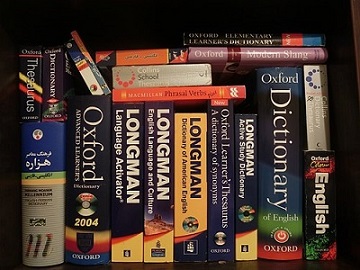
Courtesy of wikipedia.com
One of the truest phrases in the English language is “words fail me.” I use that phrase often when I speak about our 45th president. But politics aside, words do sometimes fail us. Life is too amazing, too deep, too happy, or too sad to be contained by words. Nonetheless, we humans accept other people’s guttural sounds or paper scribblings as the equivalence for intangible thoughts and feelings.
Throughout my life, I’ve collected words the way an entomologist collects butterflies. Both are elusive and fragile. And like the butterfly, words are subject to evolution. They morph over time, altered when cultures blend or a new invention or technology emerges, or by careless speech. Sometimes, words come to mean their opposite. To “sanction,” someone, for example, is to express both approval and disapproval.
When emotions are strongest, words are the most vulnerable. Try to comfort a parent who has lost a child and we see how useless they become. Nonetheless, we feel obliged to say something, though we may curse ourselves inwardly, aware our effort is bound to fail.
Recently, a friend sent me a list compiled by the novelist Sara Harrison. The sender knew I would delight in the words which Harrison ascribed to weary critics and publishers who review books for a living. (Slightly Fox, Issue 27, Sept. 2010) Here are a few examples.
Enchanting – there’s a dog in it. Heartwarming – there are a dog and a child in it. Thoughtful – tedious. From the pen of a master – same old, same old. Exotic – set abroad. Spare and taught – under-researched.
The list makes me smile, as my friend would wish. But it also reveals how slippery words are. First, there is the text. Then there is the subtext.
